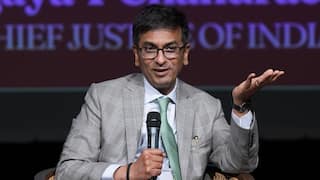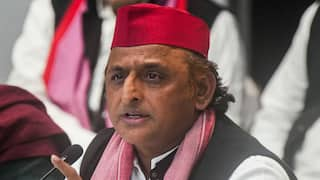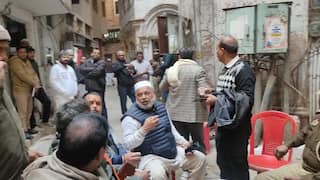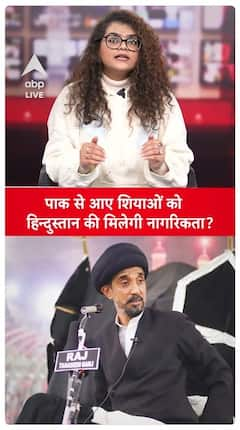How exactly does a student score 100/100?

That the Indian school education system has a marks inflation problem is now no news. The Central Board of Secondary Education (CBSE) has itself admitted to the perils. And not just the CBSE, but nearly all boards, including the ICSE, have been hit by the obscenely high-marks tornado.
From being used as a provision to provide grace marks to students who fall short of a few marks to pass aboard examination; or when some difficult questions are set; or when there are questions with errors, the so-called moderati
The case of the perfect 100 per cent scorers or even those scoring 95 per cent and above is the most intriguing. As per reports, in 2014, about 2,90,433 students secured more than 90 per cent marks. And, as many as 2,423 students got more than 95 per cent — a 60 per cent increase from 2013. In 2016, the bar was raised even higher. The number of those who scored 95 per cent and above shot up to 14,000.
Indeed, the case of the magic 95 per cent scores was the most curious — there was a 2,000 per cent rise in the number of students getting more than 95 per cent in the CBSE class 12 examination, since 2008.
Admittedly, the marks moderation policy has been into force since 1992. But at that point of time or until even more recently in the last decade, scoring 95 per cent in a regular way was unthinkable. The most studious of students struggled to touch the figure, let alone a perfect 100 per cent.
But today, a 95 per cent or for that matter even a 99 per cent score is not so unrealistic. It must also be admitted that it does not yield that degree of respect as it used to earlier when parents went on a sweet distribution spree for their children who scored 90 per cent. They were then also satisfied that their wards would definitely get into one of the best college with the course of theirchoice.
However, today is the time of helicopter parents who are so obsessed with high percentages that they hover around their children and build pressure on them to score well. But alas, even if they score remarkably well, with a 95 per cent, there's no guarantee that they would get admitted into one of the best colleges to a course of their choice. This probably because percentages lose meaning when everyone gets the same ones.
The central issue, therefore, with the boards utilising the moderation policy, has not so much to do about students scoring too high, but it's that of making their percentages too similar. Ideally, there's not much difference between a student scoring 93 per cent or 98 per cent, though achieving the latter is markedly harder.
But it is unfair for the former to have not reached the cut-off mark to get admissions into one of the top colleges or universities in the country. This leads to the creation of a toxic environment among the students as they are pitted against one other. At best, it gives rise to a hyper-competitive culture. Worse, it sends across a message among the students that their success lies in the failure of the other, often by decimal point difference.
This brings us to the question: Why did the boards have to indulge in such large-scale generosity inmarki
The truth is that there was an ongoing competition between different boards. While some took to lenient marking system, others decided to take the marks moderation route to inflate marks. The common aim was to inflate results because, ultimately, it is the final percentage obtained in class XII that decides the careerof the candidate.
What is surprising though is that this policy persisted under the nose of students, schools, teachers, respective boards and even the media, who were all aware of this system. One obvious solution to this could have been marks deflation. But the boards found this too difficult to implement because by nature, it is a negative and unpleasant academic move. Perhaps none would have heard of a college/university/board undertaking a grade deflation policy. Besides, which board would want to deliver poor results!
The moderation policy, however, has had one unintended positive impact: It brought the focus backon the mad rush or the lust for high marks, as if marks alone determined the merit of a student. It also brought attention to another important factor, especially at the school level: There needs to be greater focus and dignity given to vocational training. This is something that fits well with Government’s Skill India programme.
Hopefully, with the CBSE deciding to scrap the ill-fated moderation policy, percentages will now settle down to more realistic levels without compromising on quality. But then, other boards too must agreed on the same. If even one board falls out of line, others will follow suit. Which is why there is merit in the argument that the secondary school education system must be governed by a single board to ensure uniformity in syllabus and marking system.
(The writer is Assistant Editor, The Pioneer. Twitter ID: @shreya_kedia )
Disclaimer: The opinions, beliefs and views expressed by the various authors and forum participants on this website are personal and do not reflect the opinions, beliefs and views of ABP News Network Pvt Ltd. “ Opinion: Weapons Over Welfare — Debt-Strapped Pakistan Pursues Big-Ticket Naval Supremacy Plans As Citizens Suffer
“ Opinion: Weapons Over Welfare — Debt-Strapped Pakistan Pursues Big-Ticket Naval Supremacy Plans As Citizens Suffer

Trending News





























